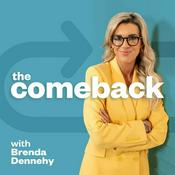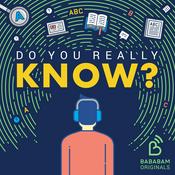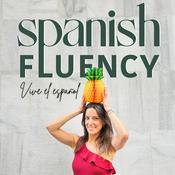244 episodes
- Keywords
weather, play, philosophy, achievement, agency, creativity, metrics, education, value capture, qualitative assessment
Summary
In this conversation, Lewis and Wem explore various themes surrounding play, philosophy, and the impact of metrics on society. They discuss the importance of play in fostering creativity and social connections, the differences between striving and achievement players, and the role of constraints in enhancing creativity. The conversation also delves into the concept of value capture, the influence of technology on perception, and the need for qualitative assessments in education. They conclude by reflecting on the importance of process over product and the future of education in relation to play.
Takeaways
Mud everywhere!
The weather can be deceiving.
Books can deeply engage us.
Play has philosophical implications.
Striving players focus on the process.
Constraints can enhance creativity.
Value capture influences our perceptions.
Metrics can simplify complex ideas.
Education often prioritizes quantifiable data.
The process of play is more important than the outcome.
Titles
Exploring the Mud: Weather and Play
The Philosophy of Play and Learning
sound bites
"There's mud everywhere!"
"This book is amazing!"
"The process is beautiful!"
Chapters
00:00 The Muddy Reality of Weather
08:16 Exploring the Depths of Play and Philosophy
11:08 Understanding Player Mindsets: Achievement vs. Striving
14:22 Facilitating Play: Agency and Autonomy in Games
17:24 The Role of Games in Social Dynamics
20:15 Process Beauty in Games: The Art of Overcoming Obstacles
23:06 The Purpose vs. Goal in Play: Social Connection Over Competition
37:08 The Sensual Act of Information Management
40:21 Nature Connection and Purpose
43:35 Metrics, Value Capture, and Scoring Systems
50:16 The Influence of Technology on Perception
56:47 The Four Horsemen of Value Capture
01:05:55 The Balance of Quantitative and Qualitative Metrics
01:10:41 Exploring Pedagogies and Their Metrics - Keywords
tree planting, community engagement, climate action, Avon Needs Trees, sustainable practices, tree care, volunteerism, Echo Wood, environmental awareness, biodiversity
Summary
In this engaging conversation, Wem speaks with Susan Barker from Avon Needs Trees about the importance of community tree planting and care. Susan shares her journey from academia to horticulture, highlighting the mission of Avon Needs Trees in combating climate change through woodland creation. They discuss the significance of community involvement, sustainable practices in tree care, and the emotional aspects of confronting climate change. The conversation also touches on the innovative Echo Wood project, which aims to create a living artwork through tree planting, and the importance of fostering connections with nature.
Takeaways
Susan Barker transitioned from academia to horticulture due to stress and a desire to work with nature.
Avon Needs Trees focuses on creating permanent woodlands to combat climate change and biodiversity loss.
Community engagement is crucial for the success of tree planting initiatives.
Sustainable tree care practices are essential for the long-term health of planted trees.
Volunteers play a significant role in tree planting and care, fostering a sense of ownership.
Echo Wood is a living artwork project that involves planting 365 trees in a circular design.
Emotional well-being is supported through active participation in environmental initiatives.
The organization emphasizes the importance of local actions in response to global climate issues.
Conversations about climate change should balance despair with hope and actionable steps.
The survival rate of trees planted by Avon Needs Trees is impressively high, averaging around 93%.
Sound bites
"The tree care is so meditative."
"We want to have those conversations."
"It's the little things that citizens do that matter."
Chapters
00:00 Introduction to Avon Needs Trees and Susan Barker
07:39 Susan's Journey from Academia to Horticulture
12:46 The Birth of Avon Needs Trees
18:49 Land Acquisition and Community Engagement
25:09 Tree Planting and Care Practices
29:43 The Challenges of Tree Planting
30:50 Creating a Community Woodland
32:27 Survival Rates and Long-Term Care
34:50 Engaging the Community
41:44 Introducing Echo Wood
49:22 Confronting Climate Change Emotionally
01:00:21 Pod Cat.mp4 - In this episode, Wem and Lewis explore the philosophical and societal implications of play, discussing how it shapes childhood development and adult behavior. They delve into the idea that play is not merely a preparation for adulthood but a vital part of life itself, influencing social interactions and personal growth. The conversation also touches on the impact of adult perceptions on children's play and the broader cultural narratives surrounding play.
Keywords
play, childhood development, adult behavior, social interactions, personal growth, societal perceptions, cultural narratives, essential play, children, adults
Takeaways
Play is a vital part of life, not just preparation for adulthood.
Adult perceptions can influence children's play experiences.
Play shapes social interactions and personal growth.
Cultural narratives impact how play is valued.
Philosophical discussions on the essence of play are explored.
Play is essential for both children and adults.
The role of play in childhood development is multifaceted.
Play can reflect societal issues and biases.
Understanding play requires a holistic view of its impact.
Play is a fundamental aspect of human experience. Episode 237 — Tree Books! What to read, why it matters, and how it shapes practice
11/1/2026 | 56 mins.Summary
From Westonbirt inspirations to field guides and plant-hunter epics, Lewis and Gemma pull 13 tree books and ask how reading changes woodland practice. Hear about ships with greenhouses, coppice cycles, charcoal burning, fungal networks, minimalist nursery design, mapping with old OS layers and LiDAR, plus a practitioner’s starter stack for ID and ethnobotany.
Sponsors
TENTSILE
Save 10% on tree tents and hammocks with code ForestChildren10 at checkout. Ideal for leaders who want flexible base-camp shelter without ground impact.
Chris Holland
Explore Chris’s 54-page Plant of the Week guide with songs, stories and QR videos. Use our affiliate link: https://chrisholland.myshopify.com/?ref=ForestSchoolPodcast
Key takeaways
Books are tools. Ideas on the page translate into better planning, richer invitations to play and clearer woodland decisions.
History explains today’s woods. War, trade and enclosure shaped plantations and access.
When the landscape is the resource you can need fewer add-ons.
Mycorrhizal science challenges the clean slate approach to plantations. Diversity can feed young trees.
A balanced shelf helps practitioners. Mix narrative inspiration, technical ID, land-use history and local mapping.
Chapters
00:00 Audio or video and how to follow along
02:10 Westonbirt, tree hunters and why one book leads to three more
06:40 Plant collectors, ships with greenhouses and species introductions
11:20 Remarkable trees and the Douglas fir story
15:20 Finding the Mother Tree and what fungal networks show us
20:10 Managing woods for play, coppice cycles and charcoal
25:40 Enclosure, disafforestation and the Western Rising rabbit hole
30:40 Rackham, old OS maps and first steps with LiDAR
35:30 Practitioner stack for sessions and ethnobotany
40:50 Photos or illustrations for ID, trends in tree writing, the squirrel book wish
Books and resources mentioned
Thomas Pakenham — The Tree Hunters; Meetings with Remarkable Trees
John Evelyn — Sylva, or a Discourse of Forest Trees
Suzanne Simard — Finding the Mother Tree
Peter Wohlleben — The Hidden Life of Trees
Richard Powers — The Overstory
Oliver Rackham — Trees and Woodland in the British Landscape; The History of the Countryside
Tristan Gooley — How to Read a Tree
Ray Mears — British Woodland: How to Explore the Secret World of Our Forests
Roger Phillips — UK wild plants and fungi photographic guides
Chris Holland — Plant of the Week collection
Handy tools referenced
Old OS map viewer for historical layers
LiDAR overlays for spotting ridge and furrow, pits and platforms
Listen now
🎧 Catch the full episode:
Spotify: https://shorturl.at/4WdyI
YouTube: https://shorturl.at/3qOUs
Apple: https://shorturl.at/FxfMF
RSS: https://shorturl.at/A0kx9
Stay in touch
Questions, feedback or collaboration: [email protected]
Say hello on Instagram and Facebook. Tell us your favourite tree book or share a shelf photo and tag the show so we can reshare.
Support
More episodes and resources: theforestschoolpodcast.com
Back the show from £2 a month: patreon.com/theforestschoolpodcast
Hashtags
#ForestSchool #OutdoorEducation #NaturePlay #ReflectivePractice #TreeBooks- In this punchy, practice-rich episode of The Forest School Podcast, Lewis and Wem unpack The Land — a 2016 documentary about an adventure playground in Wrexham — as screened via the Boston Children’s Museum panel. They dig into filming that sits inside the play, what “looks like a dump” can signal to children, and how adventure playground philosophy intersects with Forest School when you factor in nature’s needs, community, and inclusion. From risk versus hazard to loose parts in public parks, it is a tour through culture, pedagogy, and what real autonomy feels like.
🌟 Sponsors and supporter shout-outs
We are supported by TENTSILE. Forest School leaders and listeners get 10% off with code ForestChildren10 at checkout.
We are also supported by Chris Holland. Grab his 54-page plant guide and more with our affiliate link: https://chrisholland.myshopify.com/?ref=ForestSchoolPodcast
Patrons keep this going from just £2 per month. Thank you for keeping the lights on and the microphones warm.
⏱ Chapter Timings
00:00 Film on The Land and why it matters
01:22 Naturalistic camera work and playworker voice
03:20 UK playwork culture compared with the US context
05:44 Feelings when play looks messy, what the environment signals
08:19 Forest School versus adventure playgrounds, whose needs are held
10:40 Risk and hazard, modelling assessment in the open
12:59 Loose parts in public parks, barriers and “reset-able” spaces
15:23 Community care, freedom with a nominated adult, less panopticon
17:03 When children ignore the plan, ego checks for facilitators
18:35 What we will read next, The Anxious Generation
🌲 Keywords
adventure playgrounds, The Land documentary, playwork, Forest School practice, risk versus hazard, loose parts, inclusion, community play culture, environmental signalling, Boston Children’s Museum panel
🔖 Hashtags
#ForestSchool #Playwork #OutdoorEducation #LooseParts #ReflectivePractice
🎧 Catch the full episode:
Spotify: https://shorturl.at/4WdyI
YouTube: https://shorturl.at/3qOUs
Apple: https://shorturl.at/FxfMF
RSS: https://shorturl.at/A0kx9
🌐 More Episodes and Support
Listen to more and access resources at www.theforestschoolpodcast.com
Support the show and join our community at www.patreon.com/theforestschoolpodcast
For questions, feedback, or collaboration: [email protected]
More Education podcasts
Trending Education podcasts
About The Forest School Podcast
Wem Southerden & Lewis Ames have run Forest School and training centre Children of the Forest since 2017. The Forest School Podcast was born when they wondered if their daily wafflechats and reflections about pedagogy, play and nature connection might be of interest to others.
The podcast aims to inform and support educators, parents, outdoor and play practitioners and anyone interested in nature and the outdoors.
Through book reviews – interviews with experts, practitioners and authors – sharing our experience as educators and business owners – deep dives on fascinating topics –
Podcast websiteListen to The Forest School Podcast, Coffee Break Spanish and many other podcasts from around the world with the radio.net app

Get the free radio.net app
- Stations and podcasts to bookmark
- Stream via Wi-Fi or Bluetooth
- Supports Carplay & Android Auto
- Many other app features
Get the free radio.net app
- Stations and podcasts to bookmark
- Stream via Wi-Fi or Bluetooth
- Supports Carplay & Android Auto
- Many other app features


The Forest School Podcast
Scan code,
download the app,
start listening.
download the app,
start listening.







































